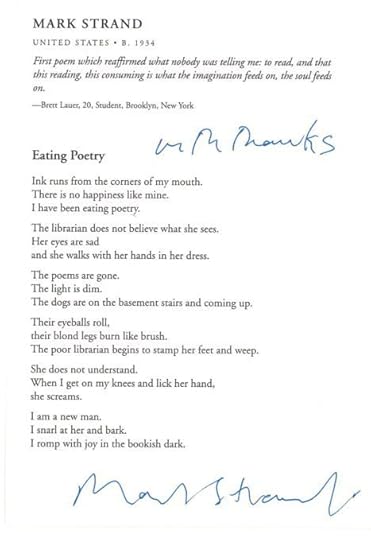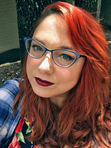National Poetry Month: Lynn Melnick & Brett Fletcher Lauer, Editors of PLEASE EXCUSE THIS POEM, Interview Each Other
Brett Fletcher Lauer: The book is finally here. I think we started working on the book and sending it to agents and editors over three years ago, which may as well be forever. I’m uncertain if I had a beard or could even grow one then. I think my voice has cracked. We’ve had the fortune to talk a little bit about the impetus behind creating the anthology in both The Volta and The Poetry Foundation and so I won’t make you recount buying poetry books at the Goodwill as a wayward youth, but I am wondering how you are feeling now that the book is out in the world?
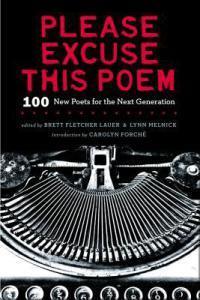
Viking Books for Young Readers, March 2015.
Lynn Melnick: Ha, thank you, and I can’t remember if you had a beard. It was 2011, I think, July or August, when we first began talking about it. I am feeling amazed and unbelievably grateful that the book is out in the world. I want as many kids as possible to read it! I guess I’m anxious to see if kids actually do read it! I’ve gotten some really nice emails from some of our poets about how much they would have loved this book as teenagers, but I’d love to hear from actual teenagers – just to make sure we did our job right! You used to write actual snail mail letters to poets as teen, and you got some responses, as I recall. What was your favorite?
BFL: I know exactly what you mean. I don’t run in many teenage circles these days, or snapchats, or the newest swipe-bot-friend-list-like-mechanism, so there isn’t immediate feedback on how we did our job. But, I’ll allow myself the briefest possible moment of pride, and say I think we did okay. And yes! As a teenager I wrote letters to poets and musicians. I sent the standard fan mail to bands like Sonic Youth, The Flaming Lips, and The Blonde Redheads. I wrote to Edward Hirsch about an article of his about anti-Semitism in T. S. Eliot’s work and I wrote a letter to Rita Dove about how politics could or does fit into poetry.
I can remember this now, I think, only because all of these people wrote back and I still have their letters. Especially in the cases with the poets of whom I was inquiring about something specific and not just gushing, though I’m sure I did that too, they wrote back serious and thoughtful letters. I’m sure the first time I was exposed to the phrase and concept “the personal is political” was through Rita Dove’s mention of it in her letter. Those were definitely very formative interactions for me as a poet, their generosity in replying, taking my questions seriously, encouraging a stranger to continue writing poems and thinking critically about poetics truly did give me a sense that poems were important and did matter outside of my teenage journal. I also wrote in to Robert Pinksy’s Favorite Poem Project, though I was 20 at the time so my teenager years had just past. They printed my little blurb about Mark Strand’s poem “Eating Poetry” in one of the editions, and, a decade later at an event in New York City, I was able to have him sign the page, which I now have framed in my apartment.
I know you just wrote about Diana Wakoski for the Los Angeles Review of Books, were there other poets or mentors that were important to you in your so-called “formative” years?
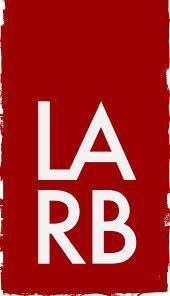
Los Angeles Review of Books
LM: Diane Wakoski was certainly a huge influence on me and I’ve in recent years also begun admitting to myself how huge the Beat poets were to the formation of my ear as a poet. I kind of wanted to reject that influence because it is such a male-dominated crowd and the work is so often problematic in that way but the rhythms they often used and the kind of stream-of-consciousness employed by many of them is not the furthest thing from my sensibility. And some of those poems are downright great, like Ginsberg’s “Kaddish,” for instance.
When I was an older teenager I discovered the Sisterhood Bookstore (may she rest in peace) in Los Angeles and that’s where I discovered Alice Walker, Audre Lorde, Adrienne Rich, H.D., Sylvia Plath and so many others who would form another huge part of my sensibility as a poet, and person. I have been fortunate to study with some amazing poets but no mentor had a bigger impact on my life than the late playwright Phil Bosakowski who said to me “you are a writer” at a crucial stage where I needed someone to say that to me in order to begin to believe it. He is a large part of why I wanted to make Please Excuse This Poem (and as you know I thank him in the acknowledgements!). Did you have any mentors in your life who influenced a kind of decisive turning point for you in your life as a writer?
BFL: I certainly had a host of people who supported my interest in poetry and treated it as something which was of value, and even something someone could study in college and pursue, and those people include my father, my oldest brother, a teacher, Ms. Martinez, who I had an independent study with during lunch hour.
I don’t ever remember anyone telling me that maybe it would be more prudent to minor in poetry and major in business, or even more prudent to major in education. And that seems like a radical thing to me, maybe both radical in their oversight given my college debt, but really radical to be presented with the possibility that I could follow my creative interests, to be given that blessing, so to speak. I guess that brings me back to the anthology—in which hopefully the poems and poets in this collection are the expression of just that, of that possibility. Does that sound too wishy-washy? Too sentimental? God, I’d hate to come off that way.
LM: No! Well, I don’t think we can be too sentimental about how it is we discovered the thing we love. Nor about how amazing it is to see the varying voices and visions all coming from different starts and going different places. That sounds corny, yes, and actually kind of vague. But, getting back to the anthology, as you say, what I’m trying to say is that the most extraordinary thing about working on this has been to gather all the different voices into one book, and to get to know, through the bios and Q & A’s in the back, the stories of how the poets came to poetry and why they love poetry and who they are reading etc. I mean, like, if this book was a dinner party, I would be so thrilled for the invite. And the generosity of our poets has been pretty extraordinary too. In fact, so many poets—both who are in the book and who are not in the book—have been really excited to take the anthology to their high school or college classes and teach the poems. It’s a dream come true. I mean, can you believe we got to do this? Now what should we do? I don’t want to stop working with you, it’s too much fun!
BFL: Same here! Although, I think this might be a good moment to end our time together, or rather just this interview.
LM: Thanks for still talking to me after all this time working together…
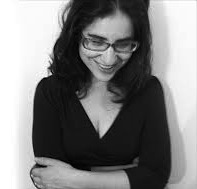
Lynn Melnick.
Lynn Melnick is co-editor, with Brett Fletcher Lauer, of PLEASE EXCUSE THIS POEM: 100 New Poets for the Next Generation (Viking, 2015) and author of the poetry collection IF I SHOULD SAY I HAVE HOPE (YesYes Books, 2012). She teaches at 92Y in NYC and is the social media & outreach director for VIDA: Women in Literary Arts.
You can find her on Twitter@LynnMelnick.
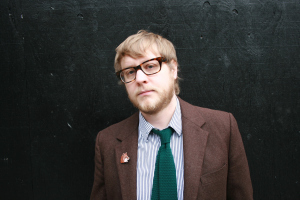
Brett Fletcher Lauer.
Brett Fletcher Lauer is the deputy director of the Poetry Society of America and the poetry editor of A Public Space, and the author of the collection A HOTEL IN BELGIUM. He is the co-editor with Lynn Melnick of PLEASE EXCUSE THIS POEM: 100 New Poets for the Next Generation and is the poetry co-chair for the Brooklyn Book Festival and lives in Brooklyn.






